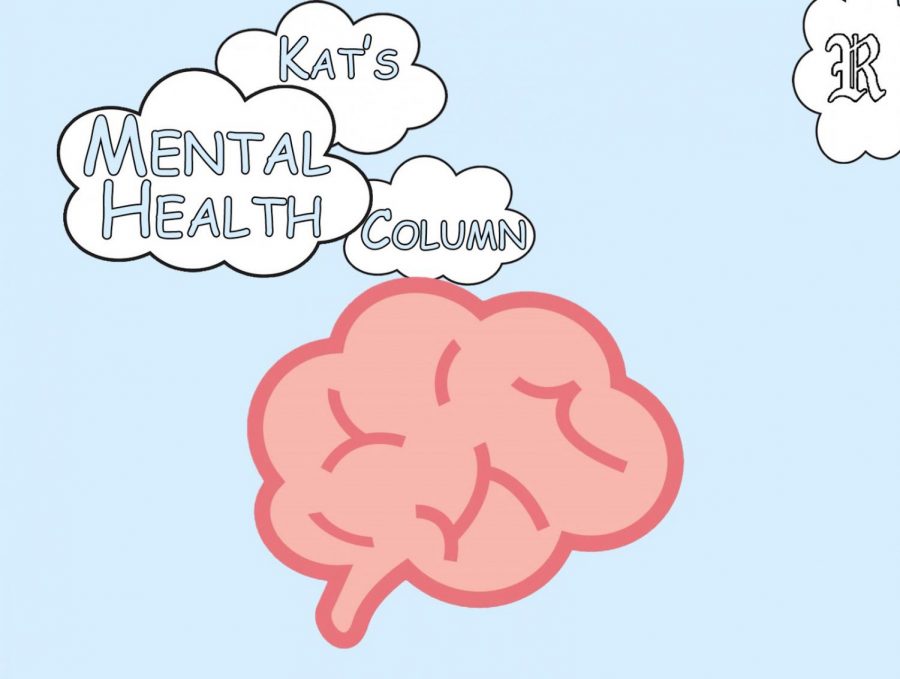Misogyny and Its Effect On Mental Health
Kat’s Mental Health Column is a bi-weekly column that explores different aspects of mental health. (Courtesy of Cory Bork for The Fordham Ram)
As Women’s History Month comes to an end, it’s an important time to discuss women’s mental health. Although mental health issues are not exclusive to any gender, there is a clear difference in prevalence and patterns when looking at women’s mental health specifically.
Over 1 in 5 women struggle with mental health issues each year. Yet, there are numerous obstacles preventing women from seeking the help they need. The most prominent of these is a heavily internalized generalization that women are simply “sensitive” or “emotional.” While there is a stigma against mental health disorders in general, women’s problems are more commonly dismissed as mere drama. Although there’s been a strong effort to combat this, it is nevertheless a strong deterrent for many from seeking the help they need.
In fact, this stigmatization has been so ingrained in women’s self-perception that it even shows in the types of disorders they tend to develop. Women are far more likely to develop what are referred to as internalizing disorders. These disorders, such as depression and anxiety, involve significant distressing emotions, such as sadness and fear, directed at the self.
There are also many social factors that contribute to the higher rates of mental health problems among women, including violence, role expectations and pay discrepancies. According to the American Psychiatric Association, 1 in 3 women have experienced sexual and/or physical violence. This can bring up many intense emotions such as fear, confusion or numbness, and can result in the onset of depression, anxiety and PTSD. Needless to say, these traumatic experiences are excruciating to bear and process. Moreover, the constant violence we hear reported in the media can evoke painful memories for trauma survivors . For example, the recent news of Sarah Everard’s muder is heartbreaking and can be triggering for many women. Many women may be facing unpleasant memories of their own trauma or experiencing a resurgence of fear of this repeated violence that no “preventative measures” can protect against.
Social role expectations also influence women’s mental health. Gender discrimination and gender-based expectations in particular can be overly demanding on women. Outdated gender norms demand that women serve as the caregivers of the family, but these demands can poorly influence the mental health of the caregiver. This is not to say that taking care of someone is inevitably detrimental, but rather that excessive expectations can be harmful when taken to the extreme. If a woman constantly spends her time and energy on behalf of someone else, it is far too easy for her own needs to simply slip into the background or be entirely ignored. As one mother puts it, “I just don’t have time to take care of my mental health right now, I have to keep it together for everyone else.” Moreover, the responsibility of having to make challenging decisions regarding another’s well-being can easily become overwhelming. This effect has only been heightened during the pandemic, which has created “a mental health crisis for mothers that fervently needs to be addressed, or at the very least acknowledged.”
While these gender norms are yet to be fully reformed, there are new expectations being placed on women that are not matched with equality. Although the realization that women need not be dependent on others is a step in the right direction, female autonomy is hindered by the wage gap. Not only does being paid unequally limit opportunities, but it also results in further internalization of stigma. Without receiving proper compensation for their work, women are made to feel as though they are somehow lesser than men. This valuation on behalf of society is clearly detrimental to women. Additionally, the combination of lower pay and heightened responsibilities leads to immense increased stress. This inequality can result in an inability to receive proper mental health care.
While these factors may seem to function on a large scale, we are still able to help each other. No matter your gender identity or what anyone may try to tell you, mental health problems are not a sign of weakness. In combating the stigma, always strive to validate others’ feelings. Truly listen and reaffirm what they are saying and avoid labeling their feelings as dramatic or an overreaction. By doing so, we can begin to reform outdated ways of thinking to ensure that everyone gets the help and support that they need without having to face the added stressors of gender-related stigma or discrimination.









































































































































































































